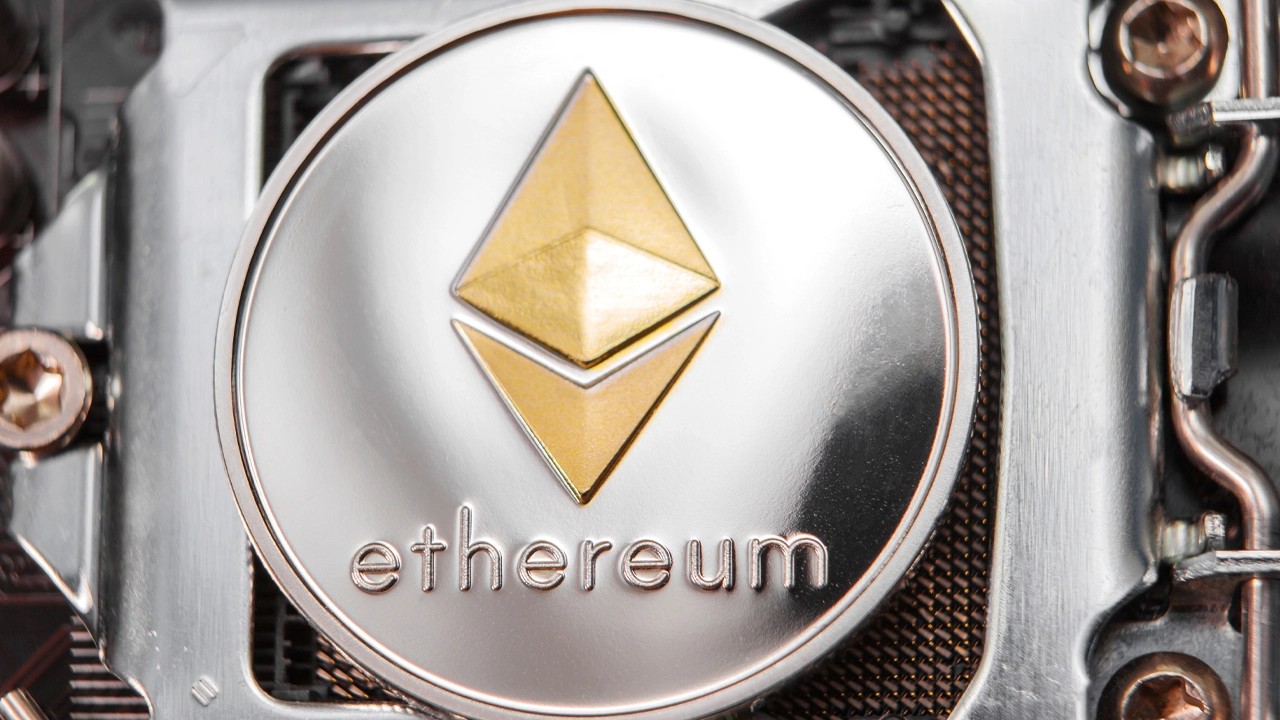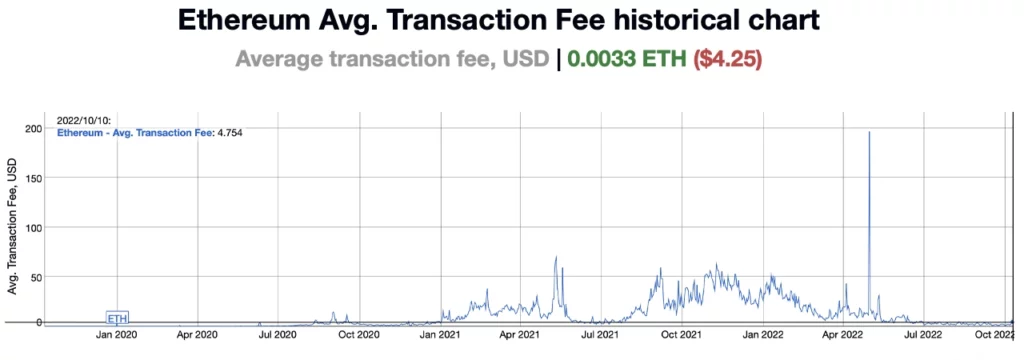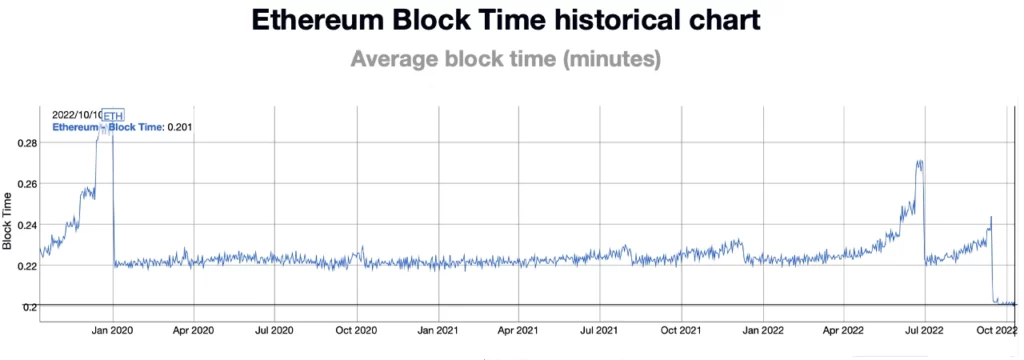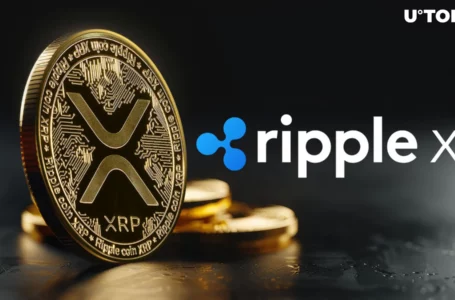
26 days ago, Ethereum transitioned from a proof-of-work (PoW) network to a proof-of-stake (PoS) blockchain and after the change, the network’s fees remained low. This week, however, Ethereum’s gas fees have increased as data from October 10 shows the average fee tapped a high of $4.75 per transaction.
Ethereum’s Average Gas Fee Jumped Over 80% in 3 Days
Ethereum’s gas fees have ticked upward, jumping 84% from $2.58 per transaction on October 8 to $4.75 per transfer on October 10th. Ethereum fee of $4 has not been breached since August 11, 2022 or about 61 days ago.
Statistics from bitinfocharts.com indicates that the median transfer fee on October 10 is $2.2 per transfer. Etherscan.io’s gas tracker also shows an increase as today’s high priority fee is around 27 gwei or $0.62 per transfer.

44 days ago or on August 28, 2022, etherscan.io’s gas tracker shows that the fees were lower before the merge as the higher priority fee was around 11 gwei, or $0.34 per transfer. While the fee for high-priority transfers is around $0.62, swapping and transferring ERC20 tokens can cost more.
An Opensea sale is $2.13 per transaction today, when it was $1.17 per transaction on August 28. A Uniswap trade has an estimated cost of around $5.49 and 44 days ago, it was around $3.03.
Sending ERC20 tokens like USDT or USDC would cost $1.61 today and on August 18th, it was around $0.89 per transaction. Layer two (L2) fees are still much cheaper than Ethereum’s onchain transfer figures.
Metis Network is around $0.01 to transfer ETH, while Loopring will cost $0.02. Both Zksync and Arbitrum will cost around $0.03 to transfer ETH and Optimism is a bit more expensive today, at $0.10 per transfer.
The Boba network is approximately $0.15 per transaction and the Aztec network is approximately $0.25 per transaction. The cost of swapping an ERC20 using the L2 protocol can range from $0.05 to $0.32, depending on which L2 is chosen.

Since The Merge on September 15, while ETH fees increased, block times have been faster than they were prior to the transition, but only by milliseconds. Pre-Merge block times show 0.244 minutes while post-Merge block intervals are 0.201 minutes or 17% faster than before September 15.
While many assumed gas fees would be cheaper after the merge, the Ethereum Foundation insisted well before the transition that the merge upgrade would not affect gas fees and throughput.
“The Merge deprecates the use of proof-of-work, transitioning to proof-of-stake for consensus, but does not significantly change any parameters that directly influence network capacity or throughput,” the Ethereum Foundation said on August 16.


















